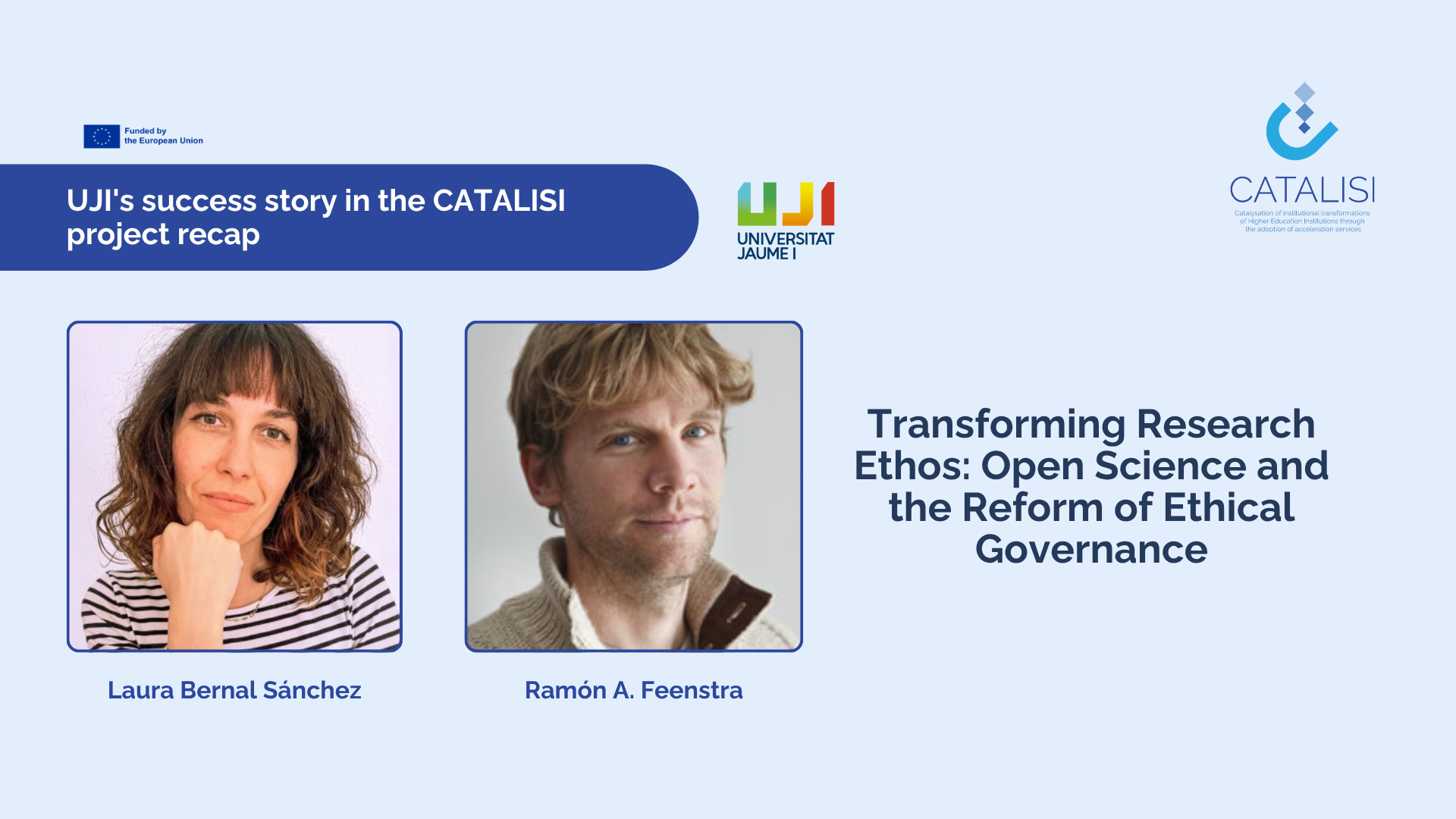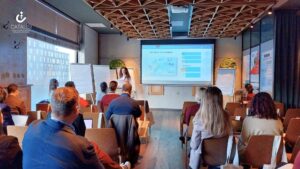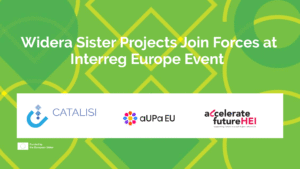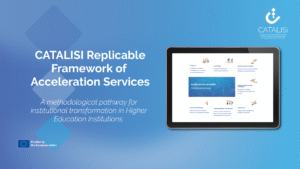
Castelló de la Plana, Spain – Universitat Jaume I (UJI) is transforming research practices, fostering a culture of research integrity, ethics, and open science.
This commitment was highlighted in a recent webinar featuring Ramón A. Feenstra and Laura Bernal Sánchez from UJI, who shared their university’s success story under the framework of the CATALISI project.
UJI’s initiatives are designed to strengthen research ethics and open science, aligning with the National Open Science Strategy (ENCA) and aiming to boost transparency, quality, and reproducibility in research. The webinar provided a look into the challenges faced and the solutions implemented by the university.
Laura Bernal Sanchez explains UJI´s problems, needs and inspiration
- Improvements in ethical reviews
Laura Bernal Sánchez, secretary for various research ethics committees at UJI, detailed the increase in applications for ethical review. From 81 human research applications and 7 animal experimentation applications in 2020, the numbers soared to a combined total of 1038 applications in 2024. While acknowledging this surge as a positive indicator of researchers’ growing awareness of ethics and integrity, Bernal Sánchez highlighted the strain it placed on existing resources.
To address the overwhelming workload and maintain efficiency, UJI has implemented significant changes to its ethics review process. Inspired by practices observed at the University of Amsterdam, UJI transitioned to a peer-review model for project assessment, preceded by technical evaluations in ethical and data protection aspects. This shift has dramatically reduced review times for both the committee and researchers, a crucial improvement given the increasing complexity of research projects.
- Development of a chatbot
Another innovative solution is development of a chatbot. This tool aims to provide immediate answers to frequently asked questions, freeing up valuable committee time. Bernal Sánchez emphasised that while not AI-driven to avoid potential misinformation, the chatbot’s design allows for the identification of new or recurring questions, informing future updates and guidance.
- Code of Good Research
Addressing the growing complexity of research, particularly in areas like Artificial Intelligence, UJI is proactively integrating these new topics into its Code of Good Research Practices and doctoral programmes. This ongoing process, informed by national and European regulations (such as the EU’s AI Act and animal welfare guidelines) and collaborations with other institutions, ensures that the university’s ethical framework remains current and relevant.
Ramón A. Feenstra discuss UJI´s efforts in Open Science and the reform of the evaluation system
Ramón A. Feenstra underscored the critical importance of institutional involvement, stressing that successful change requires the full commitment of university leadership.
UJI has developed and approved comprehensive action plans for both Open Science and research assessment, extending beyond the CATALISI project’s duration until 2027. These plans, available in Valencian, Spanish, and English, demonstrate UJI’s long-term dedication to these transformative pathways.
- Survey on Open Science knowledge
A key initiative under these plans was a comprehensive survey conducted in late 2024. With 330 responses, the survey provided valuable data on researchers’ knowledge, interests, and concerns regarding Open Science and research assessment. Feenstra highlighted the importance of understanding academics’ perspectives, especially given Spain’s historically metrics-driven evaluation system.
Despite critical views of quantity-focused evaluation systems, researchers continue to rely heavily on traditional metrics. Highly Valued Indicators:
– Impact Factor | Avg. score: 3.96
– Number of Citations | Avg. score: 3.87
-Number of Articles in English | Avg. score: 3.74
The researcher´s awareness of DORA and CoARA is still limited. Despite openness to reforming research assessment and Open Access, their knowledge of key international initiatives is low among UJI researchers.
-Average Knowledge Scores: DORA (San Francisco Declaration): 2.08
– CoARA (Coalition for Advancing Research Assessment): 1.96
The survey’s findings offer crucial guidance for tailoring future initiatives to better support researchers.
Both speakers emphasised that UJI’s journey is a “work in progress.” Future efforts will focus on increasing resources, establishing a new biosafety committee, further strengthening integrity structures, and enhancing local and national ethics networks. Continuous improvement in research integrity awareness through training courses and webinars remains a top priority.
UJI’s experience under the CATALISI project serves as a compelling model for other institutions grappling with similar challenges. By proactively addressing the complexities of modern research and fostering a culture of openness and integrity, UJI is setting a commendable standard and contributing significantly to the broader objectives of the European Commission and the European Research Area (ERA) policy.



